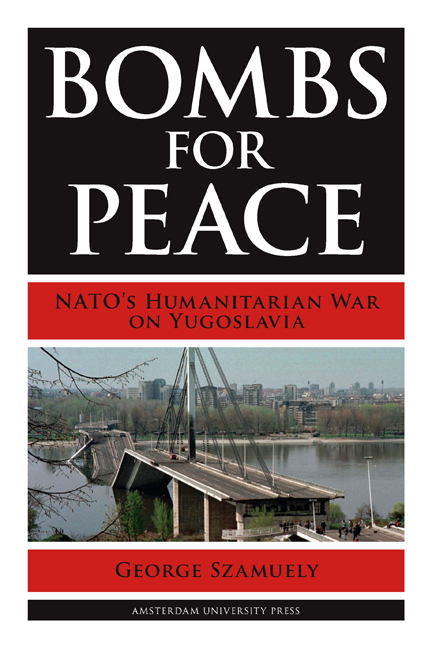Book contents
- Frontmatter
- Dedication
- Contents
- Acknowledgements
- Introduction
- 1 Yugoslavia: Destroying States for Fun and for Profit
- 2 In Search of the Good War: Bosnia: April 1992 to May 1993
- 3 Peacemaking v. Humanitarianism: Bosnia and Croatia: June 1993 to December 1995
- 4 Humanitarianism Fulfilled: Bosnia’s Unsafe Areas
- 5 Kosovo: The Denial of Sovereignty
- 6 Kosovo: The set-up
- 7 Kosovo: Standing up to the Yugoslav Goliath
- Conclusions: Ensuring Success by Lowering Standards
- Notes
- Select Bibliography
- Index
2 - In Search of the Good War: Bosnia: April 1992 to May 1993
Published online by Cambridge University Press: 12 February 2021
- Frontmatter
- Dedication
- Contents
- Acknowledgements
- Introduction
- 1 Yugoslavia: Destroying States for Fun and for Profit
- 2 In Search of the Good War: Bosnia: April 1992 to May 1993
- 3 Peacemaking v. Humanitarianism: Bosnia and Croatia: June 1993 to December 1995
- 4 Humanitarianism Fulfilled: Bosnia’s Unsafe Areas
- 5 Kosovo: The Denial of Sovereignty
- 6 Kosovo: The set-up
- 7 Kosovo: Standing up to the Yugoslav Goliath
- Conclusions: Ensuring Success by Lowering Standards
- Notes
- Select Bibliography
- Index
Summary
“More war means more, not less, hatred, more violence, more ethnic cleansing and more destruction … Peace can provide the opportunity to tackle and to change the attitudes that cause ethnic cleansing.” Thorvald Stoltenberg, address to the Parliamentary Assembly of the Council of Europe, January 2, 1994
As expected, war broke out in Bosnia immediately following recognition. In fact, violence had already broken out a month earlier, on March 1, when Muslim gunmen opened fire on a Serb wedding party being held in a Muslim section of Sarajevo.
Having urged Izetbegović to seek independence even though there was not the slightest possibility that Bosnia could survive as an independent state, the Europeans and Americans now left him to fend for himself. Having made their bizarre decisions – granting statehood here, refusing statehood there, conjuring nations out of thin air while making others disappear – having provoked certain war, the Europeans and the Americans could have offered to send in troops to safeguard their bizarre handiwork. Understandably, they did no such thing. Public opinion wouldn't have tolerated it. A villain therefore had to be found to explain why the policymakers’ self-evidently good intentions, based as they were on boilerplate about democracy, human rights, and anti-Communism, had resulted in such total fiasco. David Owen gave expression to the West's self-satisfied complacency when he explained that, though the Serbs may have had a “justified grievance” over the West having carved out independent countries from Yugoslavia on the basis of arbitrary borders drawn up during World War ii, they, the Serbs, would nonetheless have to accept this outcome because … well, simply because that was what the “international community” had decided – with the best of intentions, of course. The decision was “taken in good faith in believing it would not be possible to reach agreement on any other boundaries, and probably that judgment was correct.”
Since the West's good intentions were obviously not to blame, malevolent intentions on someone else's part had to be the problem. A ready candidate was to hand: the most implacable opponent of Yugoslav dissolution, namely, Serbia, and in particular, its president, Slobodan Milošević, long reviled in the West as a Stalinist, a strongman, a dictator, a Communist holdout against the tide of democracy sweeping across Europe, a nationalist in the new postnationalist Europe.
- Type
- Chapter
- Information
- Bombs for PeaceNATO's Humanitarian War on Yugoslavia, pp. 125 - 190Publisher: Amsterdam University PressPrint publication year: 2013



